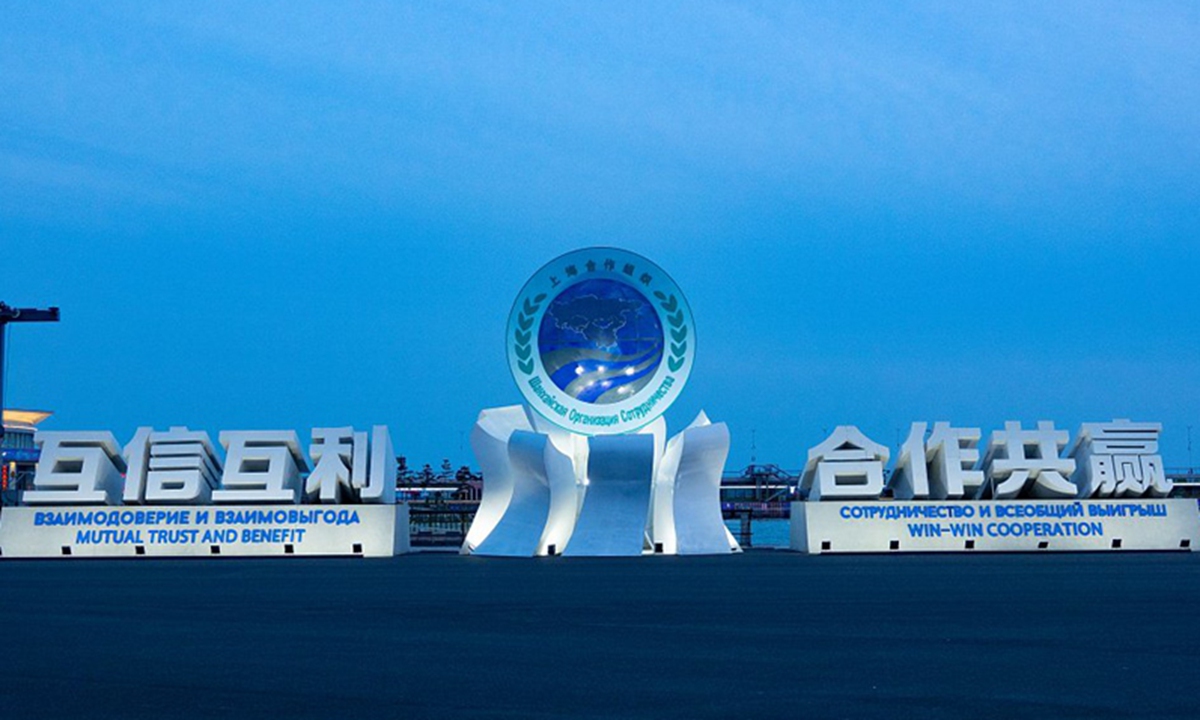
SCO Photo:VCG
Secretary-General of the Shanghai Cooperation Organization (SCO) Zhang Ming said on Friday that it has received the official application of Belarus to become a full member, while stressing that the enlargement of the SCO is fundamentally different from NATO expansion.
Receiving the application from Belarus indicated that the values pursued by the organization are in line with Belarus', and the cooperation under the framework of SCO is in the country's interest, Zhang said.
The legal process regarding Belarus' application for SCO membership will soon start, and is the same procedure after Iran, Zhang said, noting that the accession of Belarus will require the consensus of all member states.
On the upcoming SCO Summit to be held in Samarkand in September, acting Uzbek Foreign Minister Vladimir Norov previously said that if a joint decision is made, the summit will approve the beginning of a process to admit Belarus to the SCO as a member. Currently, Belarus is an SCO observer state.
Regarding Iran, the Secretary-General noted that he expects to see a Memorandum of Obligations of Iran joining the SCO to be passed at the summit.
"Based on the Decision of the Council of Foreign Ministers of the SCO Member States, at the SCO summit in Samarkand on September 15-16, 2022, it will be decided to instruct the Secretary General of the Shanghai Cooperation Organization to sign a Memorandum of Obligations of the Islamic Republic of Iran in order to obtain the status of a member state of the SCO in Uzbekistan, where a first Memorandum of Obligations will be signed, then in April 2023 it will be finalized," the Iranian Embassy said on Tuesday in an exclusive reply to inquiries from the Global Times on the matter.
When asked if SCO's expansion could be compared to NATO's at the press conference on Friday, Zhang said that NATO is a product of the Cold War, while the SCO is different in that it is not a military alliance, and the two organizations cannot be compared, as the motives, demands and consequences caused by the two are essentially different.
Zhang also said that in the three decades since the end of the Cold War, the SCO member states and developing countries have enjoyed the dividends of peace. But NATO continues to create adversaries, stubbornly insists on the concept of camp confrontation, and has tried to replicate this formula in the Asia-Pacific, which can hardly justify NATO calling itself a "defensive organization" and is not constructive for world peace and security.
The SCO member states believe that their own security cannot be guaranteed at the expense of other countries' security. Zhang hopes NATO will seriously reflect on itself fundamentally and fight against terrorism, transnational crime, human trafficking and other issues as its priority. Only when NATO changes course and focuses on addressing these global challenges will the SCO be willing to start a dialogue with it.




